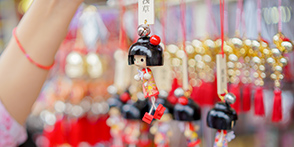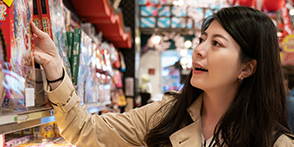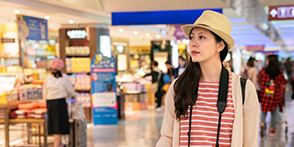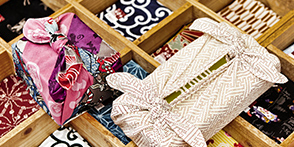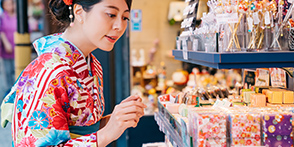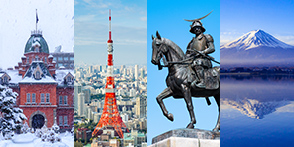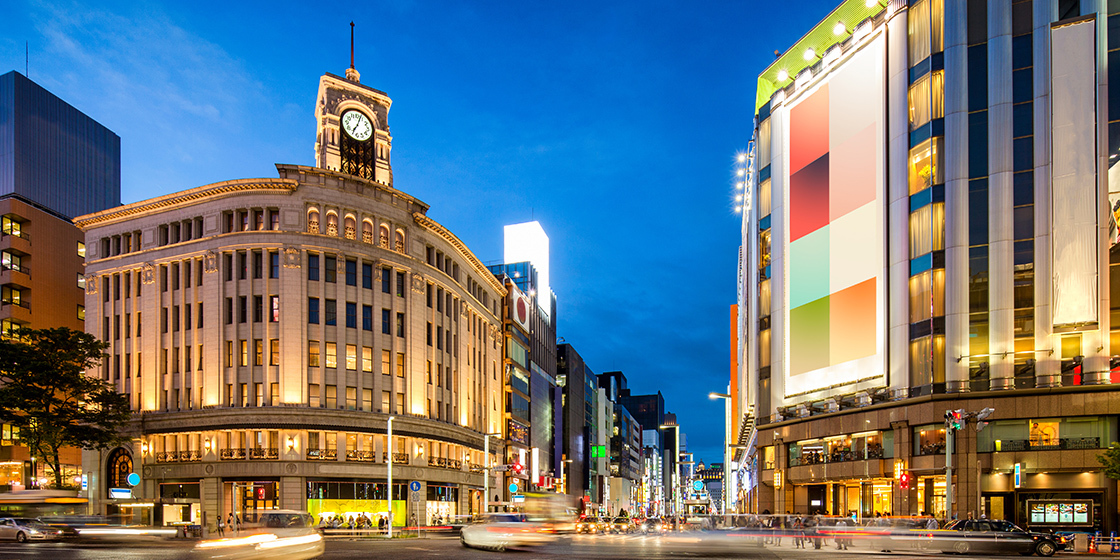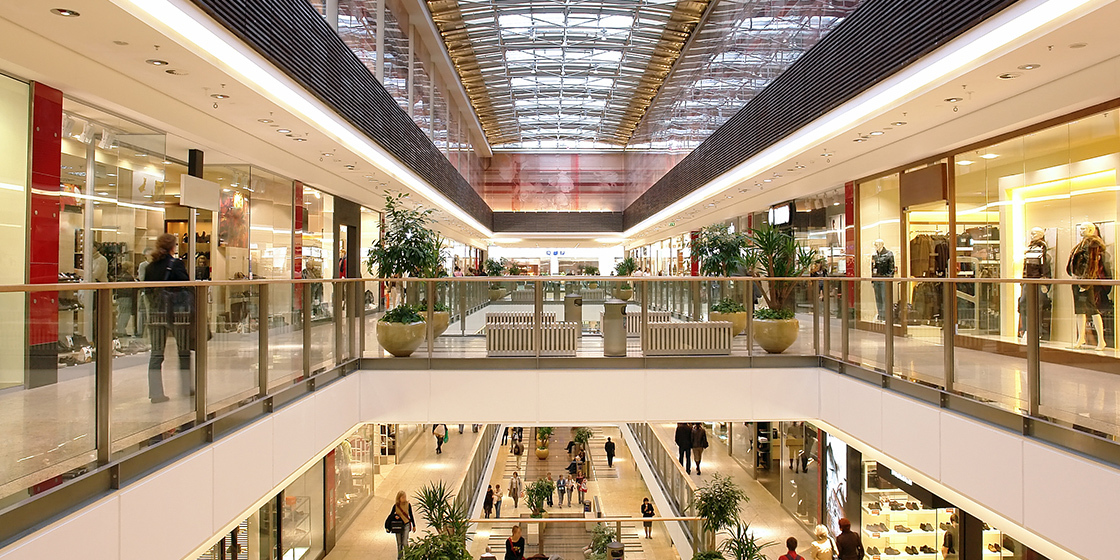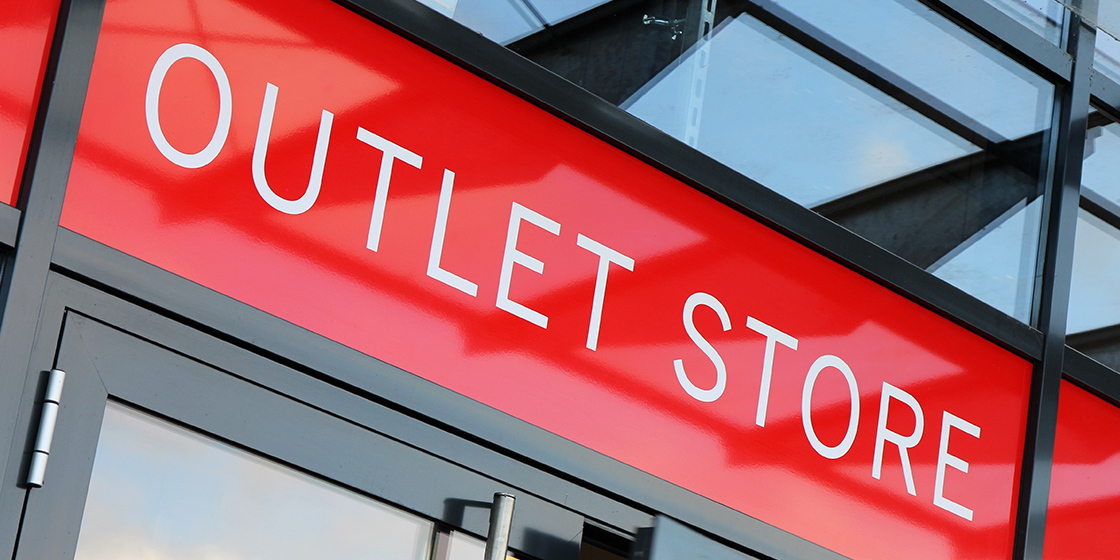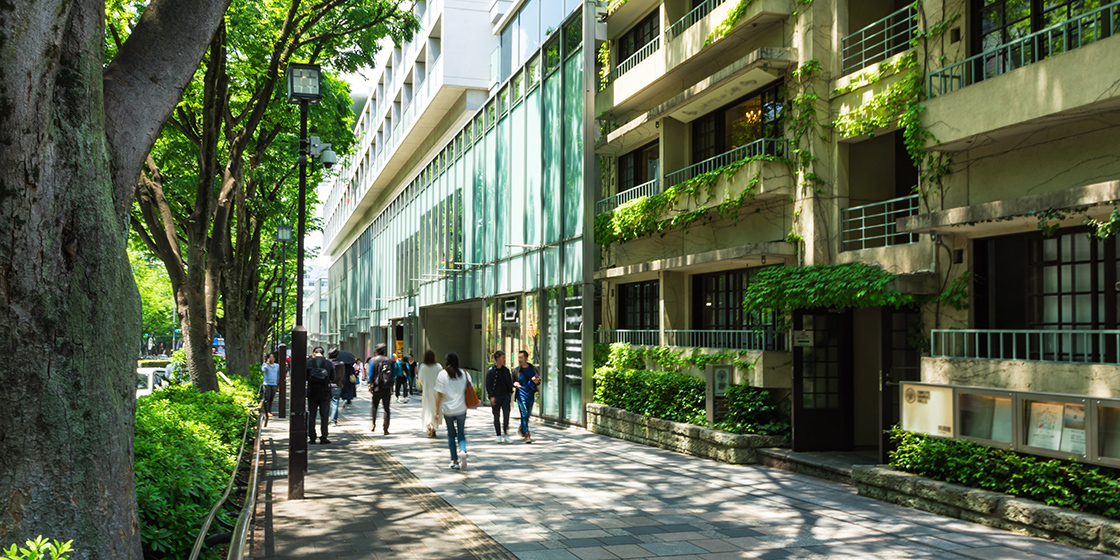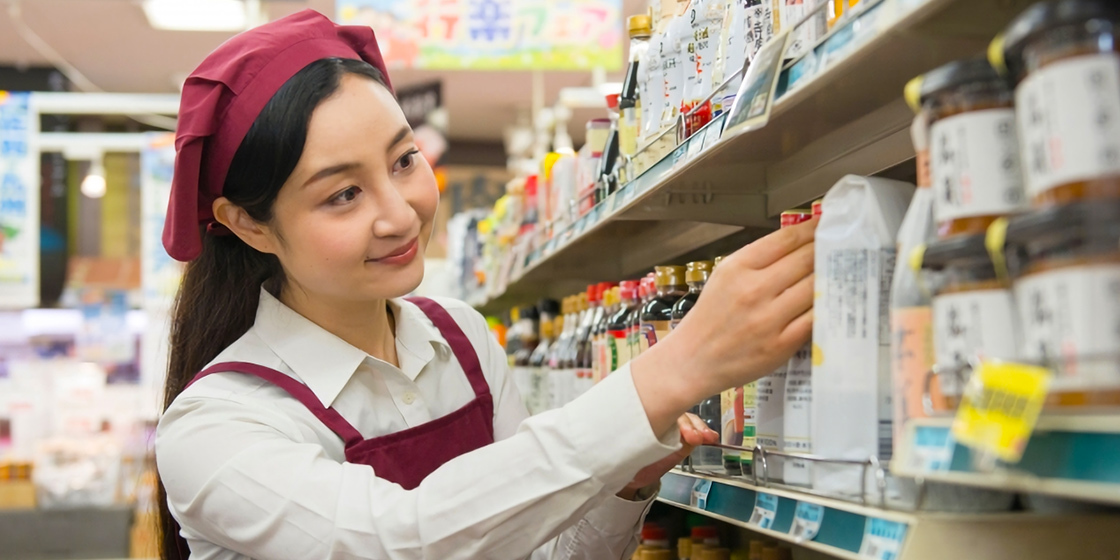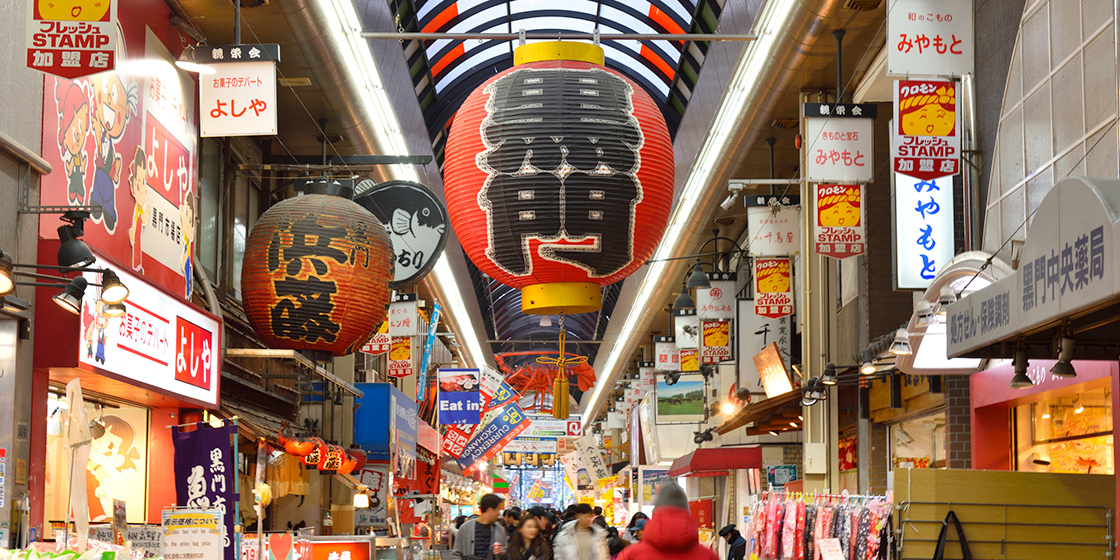Department Store
Large stores with a wide range of products that cover the whole range of clothing, food and living, located in front of the metropolitan stations such as Tokyo, Osaka, Sapporo, Fukuoka, and Nagoya, as well as in downtown areas. There are many clerks, and they sell high-quality products through face-to-face sales, so you can experience Japanese hospitality shopping such as famous brands and careful packaging. There are "depa chika" that are not very familiar in other counties, which sell deli foods, bento boxes, and Japanese and Western sweets. Depending on the location, they can be divided into urban center department stores located in the center of the city, terminal department stores located at private railway terminal stations, and suburban department stores that open as core stores such as shopping centers in the suburbs.
Only one tax exemption procedure is required. In general, business hours are from 10:00a.m. to 8 p.m. However, it is convenient as the restaurants open until around 10 p.m.
Shopping Center
A collective commercial facility with a large collection of clothing, daily necessities, food, and other retail stores and restaurants. There are mainly department stores and major supermarkets, and specialty stores, leisure facilities, parking lots, movie theaters, and post offices and banks depending on the location. It is convenient for shopping as it is often adjacent to the station. It closes at 22:00 to 22:00, so you can also shop after dinner. There are many casual clothing and miscellaneous goods stores that are popular with young Japanese women, so suitable if you wish to find kawaii.
The tax exemption procedure is often done at each shop.
Outlet Mall
You can purchase luxury brand products and manufacturer products at department stores at low prices. There are more than 100 shops selling not only brands and manufacturers' clothes, shoes, bags, fashion accessories, but also various products such as sports/outdoor goods, interior goods, household goods, and cosmetics. Most of the malls are located in the suburbs and tourist areas along the highways and main roads, far from the big cities. Therefore, car access is convenient. In most cases, there is a local bus from the nearest station, and there are also cases where highway buses run from central Tokyo. People traveling on private trips need to check the access, etc., and it will take a day including round trips, but unexpected things might be obtained cheaply.
Street-level store / Brand shop
Similar to London's Regent Street and Paris's Champs Elysees, there are many shops in Japan that sell luxury brand goods on popular streets and downtowns such as Ginza, Harajuku, Shinsaibashi, and Tenjin. Not only boutiques that sell luxury brand products such as Hermes, Gucci, and Louis Vuitton, but also a variety of specialty stores such as BEAMS and UNITED ARROWS, as well as select shops. In general, business hours are from 10:00a.m. to 8 p.m. You may not be able to reach the desired shop without checking the map or guidebook. Many shops in Tokyo and Osaka offer duty-free sales.
Supermarket
A supermarket where Japanese people go shopping everyday, such as groceries, daily necessities, and clothing. Prices are affordable due to mass purchases and self-service. Sweets, fruits, drinks and delicatessen are very popular. There are shops that open from 9:00 a.m. in the morning until around 11p.m.in the evening. Suitable if you wish to buy a lot of souvenirs for your neighbors. There are few in the center of a big city, but it is located all over the country.
Drug Store
A pharmacy located anywhere in the country such as in front of a station or near a hotel. Handling not only medical supplies, but a wide range of products such as cosmetics, daily necessities, foods including health foods. You can easily buy medicines such as cold medicine, gastrointestinal medicine and eye drops. There are many places where duty-free sales are also available.
Convenience Store
You can shop anywhere in Japan from early morning until late at night. You can buy sweets, drinks, bento boxes, and simple stationeries. There is no large amount of inventory, and mainly doing fixed price sales. In addition to purchasing products at convenience stores, There are photocopiers, ATMs, courier services, foreign currency exchange, prepaid electronic money, and ticket purchases available. In addition, there are unique services for convenience stores, such as heating up the Bento (lunch box) you purchased there.
Electronics Stores
Home electronics retailers sell home appliances such as TVs, washing machines, refrigerators, air conditioners, kitchen appliances, vacuum cleaners, as well as PCs, games, mobile phones, beauty appliances, stationery, etc. There are stores all over Japan under large-scale chain development. Some large consumer electronics retailers also sell cosmetics and food. Prices are low, and older items may be sold even cheaper as a clearance sale. In addition, many stores have introduced a point card system, and points can be collected each time you purchase a product, and you can also buy products using points.
Shopping District
There are shopping districts developed mainly in large cities such as Tokyo and Osaka, and shopping districts located in residential areas away from the city center. There are also underground shopping districts in the city center. You can get almost everything you need for everyday life, from groceries to clothing and sundries. There are restaurants and other places unique to that area, and both your stomach and heart will be satisfied. It will be fun to walk around the shopping district where you stay.
